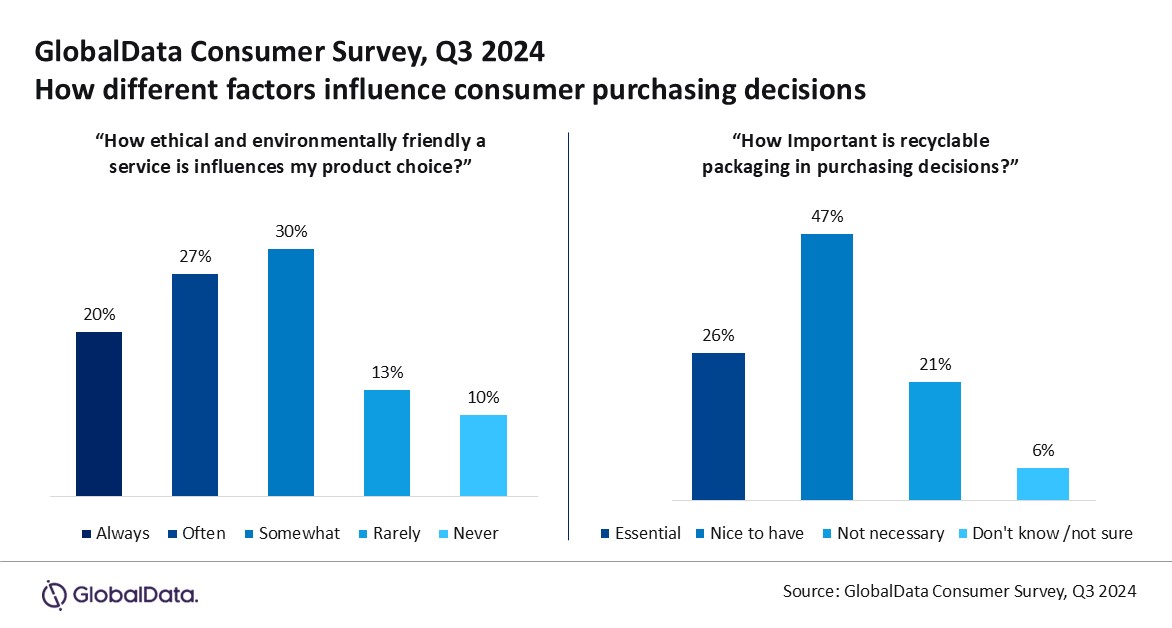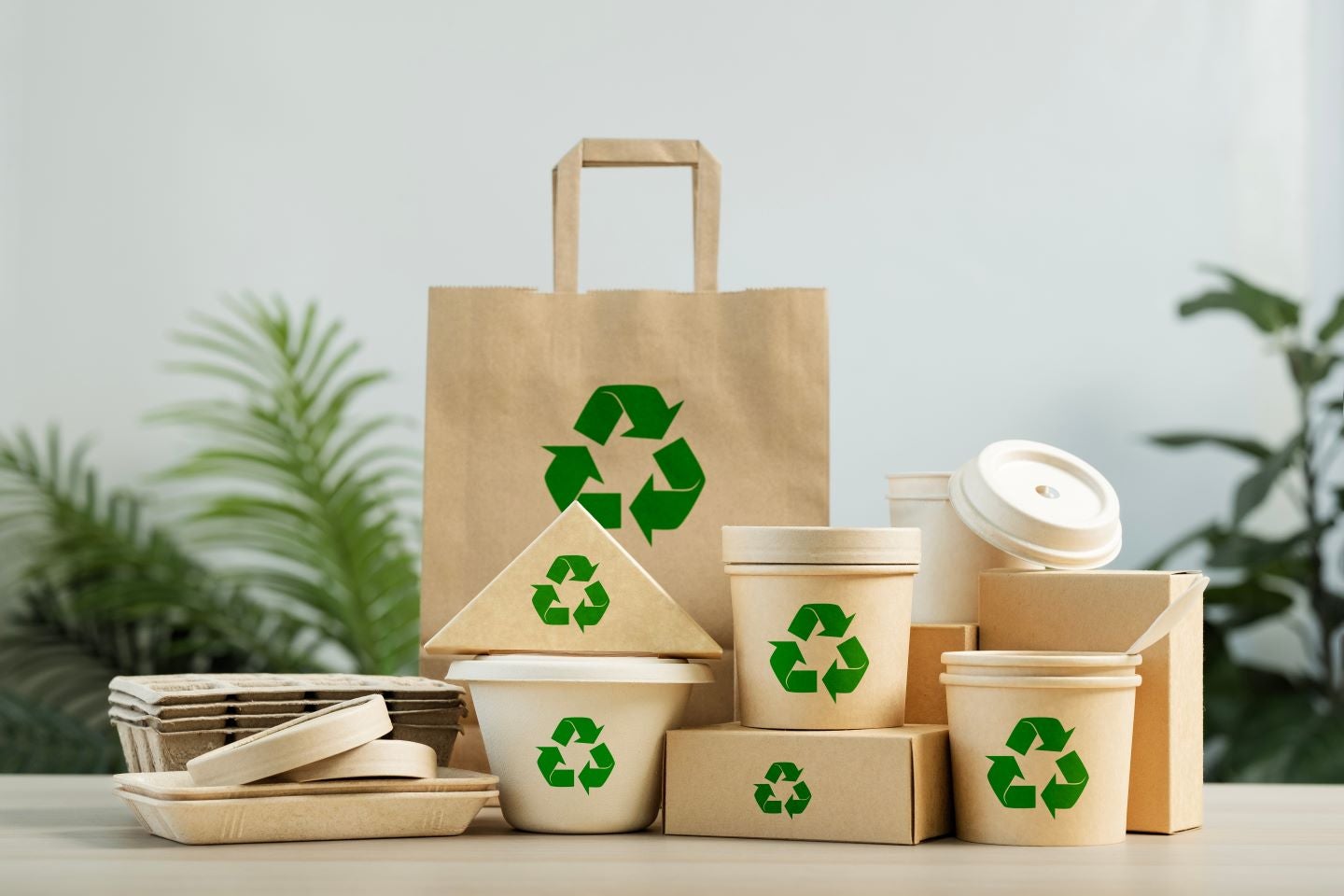The UN Intergovernmental Negotiating Committee Treaty (INC-5) negotiations in Busan, South Korea (2 December 2024), aimed to reach a binding global treaty to combat plastic pollution. This would have included measures to cap plastic production, ban single-use plastics, and provide financial support to help less developed regions implement the policy, observes GlobalData a leading data and analytics company.
While the talks, the last in a round of five, were expected to end in the Treaty’s signature at Busan, a final agreement was delayed until this year due to fossil fuel-producing nations such as Saudi Arabia and heavy plastic material producers such as China failing to agree on several treaty amendments.
This raises the prospect of stricter sustainability measures to reduce global plastic waste, which is on track to triple by 2060, with around half ending up in landfills and less than a fifth being recycled, according to OECD forecasts.
Jamie Cosaitis, Packaging Consumer Insights Consultant and Analyst at GlobalData, comments: “Unlike other UN treaties, the UN INC-5 Plastic Pollution Treaty is set to be legally binding and consequently one of the most influential sustainability agreements in recent years. The Treaty’s implementation of caps and bans on virgin and single-use plastics is set to reduce the overall volume of plastic entering the market and force companies to adhere to mandatory design amendments, which should accelerate innovation.”
Establishing a “legally binding treaty” is supported by the CEOs of more than 20 consumer goods companies including Nestlé, PepsiCo and Danone who have signed an open letter organised by the Business Coalition for a Global Plastics Treaty, supporting the development of a legally binding UN treaty to end plastic pollution.
Consumer demand for sustainable packaging supports Treaty agreement
According to GlobalData’s consumer survey Q3 2024, 47% of consumers say that “ethical and environmentally friendly services” impact their purchasing decisions “always” or “often”, while 73% of respondents claim that “recyclable packaging” is an “essential” or “nice to have” factor in their purchasing decisions.

These trends highlight the increasing consumer demand for more sustainable products with less reliance on plastic packaging in the supply chain, which the Treaty’s agreement will only accelerate.

US Tariffs are shifting - will you react or anticipate?
Don’t let policy changes catch you off guard. Stay proactive with real-time data and expert analysis.
By GlobalDataInnovation in “paperisation” and other biodegradable materials
The impending treaty negotiations are also likely to accelerate packaging manufacturers’ innovation efforts to develop alternative materials offering a higher rate of reusability. “Paperisation” has become a growing packaging trend, aimed at replacing plastics with paper and paperboard materials, which offer superior biodegradability.
As promising as this kind of innovation is, many packaging experts remain to be convinced that paper-based packaging products have the functionality required to protect products throughout the entire supply chain. Biodegradable barrier coatings and alternative plastic polymers are also being developed, which may offer more durability. However, these solutions remain a costly alternative to plastic packaging.
Transition to a circular economy
Many companies are advocating for plastic products to be purposefully designed to be reused and calling on the treaty to include a circular design criterion for plastics to prevent them from contributing to waste and pollution by ensuring materials retain their value and recyclability.
Extended Producer Responsibility (EPR), is also included in the new regulations, which will require companies to be more accountable for their product’s full life cycle, including post-consumption waste and disposal. Although EPR already exists, implementation on a global scale will allow for a unified international framework unlike anything seen before.
Deposit Return Schemes (DRS) are set to play a significant role in the UK circular economy as they do in other countries. Germany is one of Europe’s DRS pioneers and achieves one of the highest return rates on eligible single-use drink containers in the region. In the UK, all four nations have been working on a joint DRS approach, with a predominant focus on single-use plastics and cans. However, the adoption of a UK DRS scheme has been delayed until October 2027, due to the late inclusion of glass packaging.
Cosaitis adds: “Despite current objections from countries like Saudi Arabia and China, the overwhelming number of nations in agreement with the Treaty and the urgent need to reduce the global use of plastics should lead to the Treaty’s signature in 2025. Packaging materials innovation will play an important role in reducing plastic waste and developing the circular economy; however, the costs of alternative materials will need to be reduced further before widespread adoption can be achieved. Despite the challenges, there is an urgent need for strong measures to reduce global plastic waste and pollution, which consumers and businesses support, and governments now need to implement.”
GlobalData Consumer Custom Solutions offers sector-level expertise in the Consumer Packaged Goods, Food, Beverages, Foodservice, Retail, Apparel, Packaging, Agribusiness and Automotive industries. We use our unique data, expert insights and analytics to answer your bespoke questions with a tailored approach and deliverables. To learn more or have a chat, just drop us an email at consulting@globaldata.com or contact us here, and we’ll get in touch!






